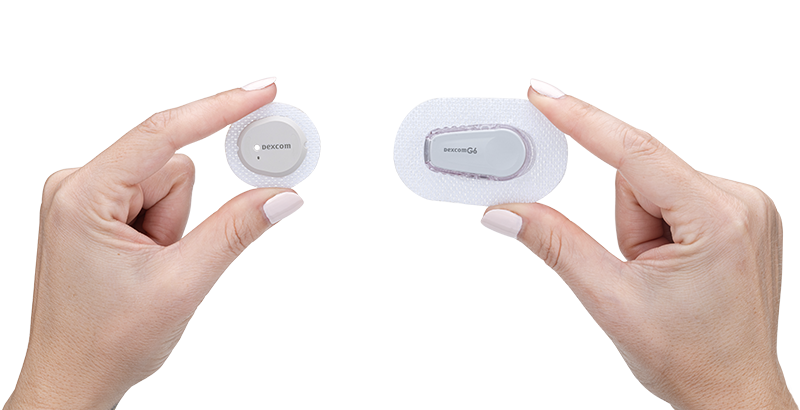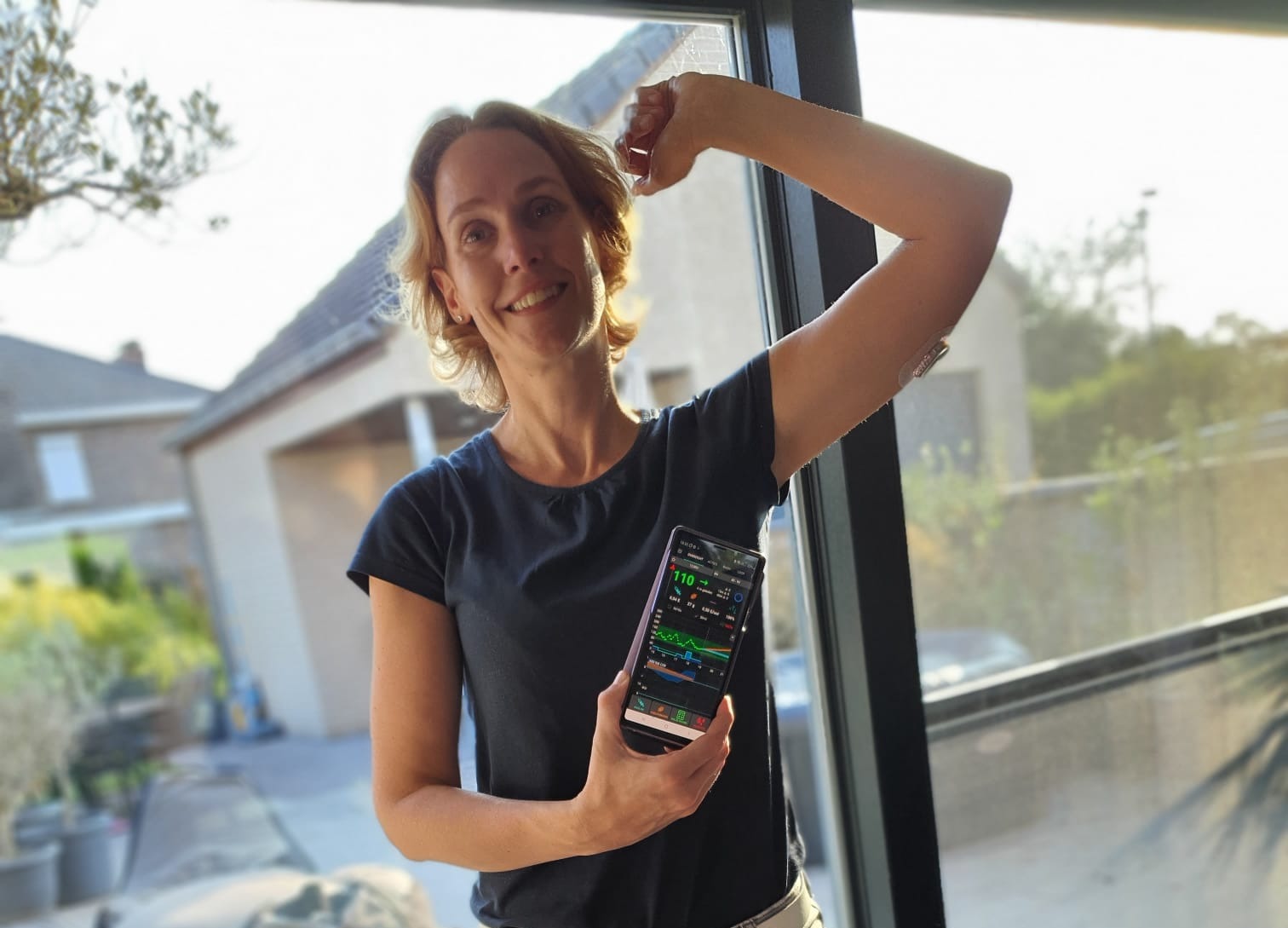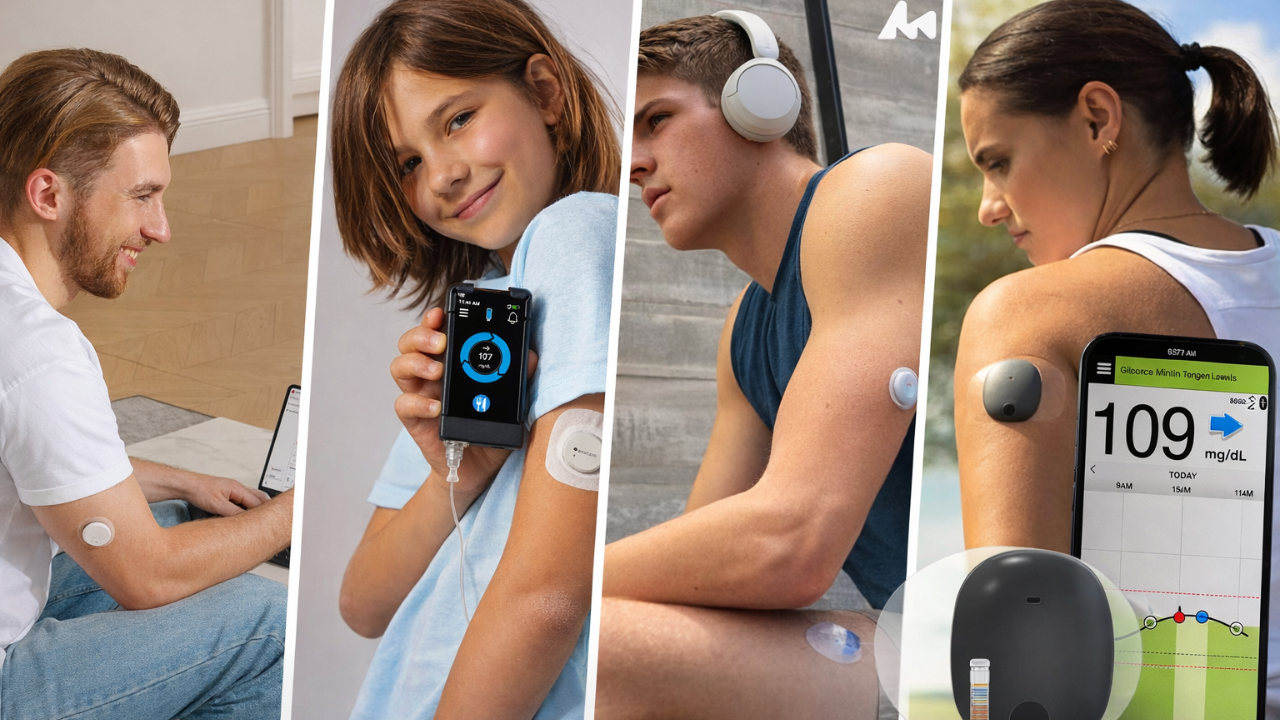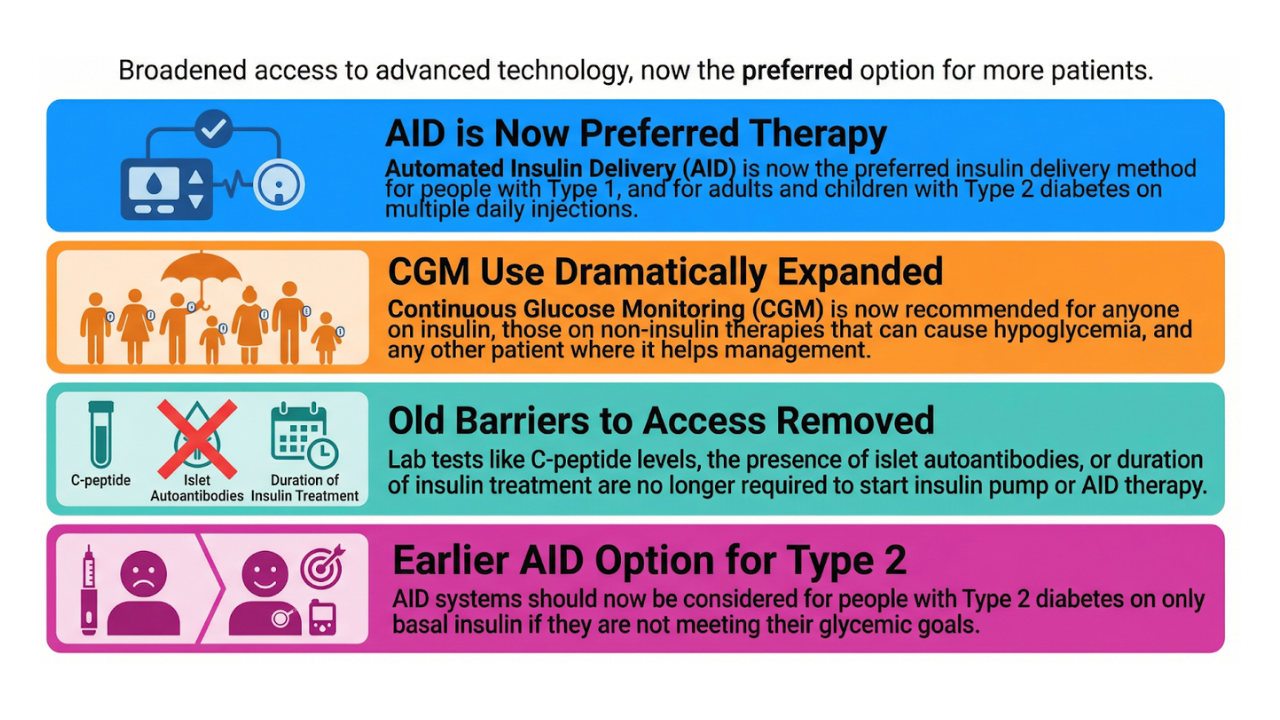Summer update diabetes technology
Aug 22, 2022
In this update I would like to tell you what caught my eye in this beautiful summer of 2022.
- I'll start with less good news about the Dexcom G7, but important to know where we stand.
- After the launch of the Omnipod 5 course, I am now completely captivated by AndroidAPS. This was also discussed at the recent ADCES conference last week, and it's interesting to see what leading endocrinologists have to say about open-source closed-loop systems.
- Finally, in my research on AndroidAPS, I also came across the website of Diabettech, which had a very interesting blog with a comparison of the MARD between Dexcom and some lesser known sensors.
Curious to learn about the new plans for the Dexcom G7, and whether open-source closed-loop systems might be right for you or your patients with type 1 diabetes? Then read on quickly!
Get Access To Updated Diabetes Technology Courses
1. Dexcom G7 Delayed by FDA
“We discussed several options that we had, and we decided the best option at this time was to revise the software and file it differently and we have added a few other features to it as well based on our discussions with them,” CEO Kevin Sayer

Dexcom G7 is the long awaited smaller version of the Dexcom G6. The warm-up time is only 30 minutes instead of 2 hours, and it will consist of 1 piece instead of a separate sensor and transmitter.
It received a CE label in March 2022, but has not yet been launched on the market (it is only available on a small scale in England).
Until recently, the FDA label was expected at the end of June 2022, but in Dexcom's quarterly report on 7/28/2022, Kevin Sayer, Dexcom's CEO, said it was not going to happen. The FDA is said to have problems with a component of the software. No further details were given.
When will the Dexcom G7 be available?
Dexcom will modify the software and resubmit the Dexcom G7 for FDA approval. They expect FDA approval by the end of this year and commercialization in the US in 2023.
Perhaps this planned software update is also the reason why the commercialization of the Dexcom G7 in Europe is being delayed so much?
Integrating Dexcom G7 into closed-loop systems
At the Keystone conference in June 2022, Kevin Sayer mentioned that the Dexcom G7 has a higher degree of cybersecurity, which makes integration into closed-loop systems more difficult.
Tandem Control IQ does have the advantage that the software in the Tandem pump can be updated.
The integration of the Dexcom G7 into Tandem Control IQ was initially expected within a month of FDA approval. Now there is talk of an integration about 6 months after FDA approval for Tandem Control IQ and probably a little longer afterwards for Omnipod 5.
Conclusion
These delays in availability are not so good news in themselves. Dexcom G7 is one of the most sought after sensors.
On the other hand, Dexcom is clearly focused on the Dexcom G7, and they seem to have a plan.
And in the meantime, the Libre3 has fortunately been able to obtain a CE and an FDA label.
The Libre3 is already available in the Netherlands, Germany and France, among others, and costs the same as the Libre2 as promised. Hopefully other countries can follow soon.
2. Open-source closed-loop systems are an alternative
"Open-source AID passes to pass the check, where commercial AID may not. Until CGM and pumps are distributed equally to the population, justice remains unfulfilled." dr. Rayhan Lal

At the ADCES (Association of Diabetes Care and Education Specialists) congress in August 2022, there was a debate about the use of open-source closed-loop systems.
Dr Rayhan Lal (Stanford) gave an overview of the current open-source closed-loop systems (abbreviated as OS-AID, synonymous with do-it-yoursef or DIY closed-loop systems):
- OpenAPS (>2013, algorithm on small PC - less used)
- Loop (>2015, algorithm on iPhone - popular in America)
- AndroidAPS (>2017, OpenAPS algorithm on android mobile - popular in Europe)
- FreeAPS X (>2019, OpenAPS algorithm on iPhone, still under development)
Available pump and CGM combinations on open-source closed-loop systems
The biggest advantage of open-source closed-loop systems is the interoperability with various insulin pumps, CGMs and smartwatches.
You can follow the calculation of the algorithm perfectly, and set all parameters (including the target value) to a value that you find most suitable for you.
Here you can see the possible hardware combinations:
(*: Requires additional device for radio frequency communication, e.g. RileyLink)
Open-source closed-loop systems are as effective as commercial closed-loop systems
Open-source AID systems clearly improve glycemic control, but until recently there was no randomized trial to demonstrate this.
However, the CREATE RCT discussed at the ADA 2022 changed this, showing that OS-AID increased TIR from 61% to 71% without causing severe hypoglycemia or ketoacidosis. The ADA has since labeled open-source closed-loop systems as safe and effective. You will find more information about it in this blog.
Open-source closed-loop systems are ethical, but not regulated
Dr. Lal repeated the evaluation of open-source AID systems based on the 4 pillars of medical ethics at the ADCES congress.
In terms of "justice" open-source AID systems score even better than the commercial closed-loop systems:

Open-source AID systems are thus ethical, but not regulated. They are not approved by the FDA or European authorities.
International Consensus in Lancet 2022
In January 2022, an international consensus was published in The Lancet: "Open-source automated insulin delivery: international consensus statement and practical guidance for health-care professionals."
It states that healthcare providers must be willing and ready to
- support people who want to use open-source AID systems,
- and also list open-source AID systems as an option for people who could benefit from them.
"The team believes it is imperative that healthcare professionals be ready and willing to support people who wish to use these systems, and even, “given the ethical implications of withholding information on effective treatment options,” to mention them as an option to people who might benefit. Clinicians should therefore familiarize themselves with the systems on offer."
“There may be no debate” - Dr Bruce Buckingham
The 2nd speaker in the debate was Dr Bruce Buckinham (Stanford). He took the position of commercial closed-loop systems. He knows them all very well, because he participated in almost all "pivotal" studies.
Before starting his presentation, however, he asked the audience of diabetes nurses who was monitoring patients using open-source AID systems. When most of those present raised their hands, he concluded with a laugh: "there may be no debate".
Advantages of the commercial systems (as opposed to open-source AID systems) are that they
- form a well-integrated whole,
- approved by the FDA and Europe,
- and recognized by health care providers.
Glycemic results in closed-loop systems are good enough
Most people on a closed-loop system achieve a TIR of >70%.
Although many people aim for a TIR of >75% or even >80%, he reminded that a TIR of >70% is sufficient to have virtually no risk of long-term complications according to the renowned DCCT study.
He received a big round of applause when he stated that closed-loop systems should not be a privilege for a few: “AID is not for a privileged few – let's give it to everyone.”
Who uses open-source closed-loop systems?
Dr Lal estimated that currently >25,000 people worldwide use open-source AID systems. In the Netherlands it would be about 400 people, and in Belgium around 40.
However, no one knows the exact numbers, but the popularity is increasing strongly.
Especially now that since this year the Omnipod DASH can also be "looped", giving you a closed-loop system with a patch pump, controlled from your mobile phone.
In the meantime, I am also very enthusiastic about open-source AID systems.
I am now testing the AndroidAPS app, linked to the Omnipod DASH and the Dexcom ONE. And for now it works 😊
Hopefully I can offer you a new course on this soon!
3. Comparison between 6 sensors
"While all provide CGM capabilities, all CGMs are not created equal." - Tim Street, Diabettech

While researching open-source closed-loop systems, I came across the Diabettech website. This was founded by Tim Street who has type 1 diabetes himself and uses AndroidAPS.
He writes very interesting blogs! This summer he tested 6 different sensors:
- Dexcom G6
- Dexcom ONE
- GlucoRX Aidex
- Glucomen Day
- Medtrum Nano
His conclusion was that the MARD of the Dexcom sensors was clearly better than the other sensors he tested (see error grids here).
(I do think that this research in itself does not mean much since it was only with 1 person.)
Unfortunately, the Libre2 sensor fell off during his research and he didn't have a replacement, so there wasn't much info on Libre2. It would have been an interesting comparison.
I was also surprised that he could test the GlucoRX Aidex, apparently it is available in the UK.
DTN-UK compiled this nice table of the sensors available in the UK via NHS:

I'm always in favor of these kinds of tables, because it shows nicely where the differences are and that there are more options than just the Libre2 and the Dexcom G6.
These were the things that have caught my eye the most over the past few weeks. But as I said, I'm mostly investigating AndroidAPS at the moment.
Those open-source closed-loop systems are really a world that is only now opening up for me. And it makes me feel like I can offer even more options to people with type 1 diabetes to make their lives easier. Starting it up is honestly very difficult, but it gives a very satisfying feeling to be able to take matters into your own hands, and decide for yourself which pump and sensor you want to use and how they should deliver the insulin.
The 10 Best Closed-Loop Systems
While waiting for the course, be sure to check out my overview with the 10 best closed-loop systems. This way you avoid not being able to see the trees through the forest, and you quickly gain insight into the biggest differences between the current commercial closed-loop systems and the 2 most used open-source closed-loop systems (Loop and AndroidAPS) = > Click here to download the overview.
Kind regards,







